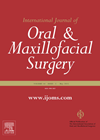
Journal Reviews archive for January 2017
Maxillary osteotomy stability
This systematic review assesses inferior repositioning of the maxilla six months after surgery. Two articles were identified with a total of 22 patients. The repositioning was of a mean of 3.2 to 4.5mm anteriorly and 0.1 to 1.8mm posteriorly. Six...
Prospective evaluation of quality of life in the flaccid
Flaccid midface paralysis causes nasal valve collapse due to the lack of tonic muscular support. This causes both external nasal valve narrowing and collapse during inspiration. Correction of the nasal valve is performed in functional rhinoplasty. However, these procedures do...
The use of botulinum toxin A to reverse paralysis of the lower lip
The aim of this retrospective case series was to examine the role of botulinum toxin A in paediatric patients with paralysis of the lower lip. Depressor or elevator muscles of the lip (unaffected side) were injected with varying doses of...
Bilateral transposition lip flaps of central upper lip defects
This case series brilliantly explains a novel technique to repair central upper lip deformities at a Moh’s reconstruction referral practice. Most of the current treatment operations advocate a secondary surgery in order to fully restore the philtral columns and the...
Incidental thyroid nodules: should we observe or operate?
Thyroid nodules are extraordinarily prevalent, detected by physical examination in 7% and by imaging studies in 67% of the population. Although most of these nodules are benign, up to 20% are found to be malignant on excision. It’s a very...
Voice after posterior cordotomy: we think voice is bad, patients think it’s better!
Bilateral vocal fold immobility (BVFI) is a condition that can affect voice with an impact on quality of life (QOL). Surgical trauma from damage to bilateral recurrent laryngeal nerves, such as from previous thyroid, parathyroid, or mediastinal surgery are common...
Salt in surgical simulation
Cheap, easily accessible and realistic methods of reproducing surgery through simulation are the ideal. Here a group from Tokyo, Japan report on a method of producing 3D printed skulls and mandibles to use for simulated surgery. A high resolution CT...
Epley Manoeuvre: number of times it is required and its diagnostic value
Benign paroxysmal positional vertigo is a common condition but if inadequately treated or wrongly diagnosed, can prolong the distressing symptoms of momentary dizziness, nausea and visual disturbances which can be due to other causes and deteriorate quality of life. Studies...
How well are we managing epistaxis cases?
Epistaxis constitutes 34.5% of all emergency admissions to otolaryngology departments nation-wide. Presently there are no detailed consensus guidelines for this commonest emergency, and there is tremendous variation of practice. Quite often, non-ENT trained doctors manage this emergency. This paper reviews...
Influence of smoking on vocal fold polyps
A vocal fold polyp is a benign lesion related to phonotrauma which induces upregulation of inflammatory processes and histological changes can occur in the epithelium and lamina propria. Whether smoking produces additional or enhanced changes is the subject of this...
An office procedure to close small tympanic membrane perforations
Various methods have been described for closure of small tympanic membrane perforations, ranging from paper patching to use of fibrin glue. The procedure needs to be non-invasive and cost effective. Use of Terdermis to close perforations of all sizes has...
Use of topical steroids and antibiotics, compared to systemic antibiotics in the treatment of acute rhinusinusitis
Acute rhinusinusitis is mainly initiated by viral infections. Bacterial infection is usually superadded. The inflammatory cascade upregulates the pro-inflammatory mediators resulting in pain, nasal obstruction and nasal discharge. Local application of steroids and antibiotics could provide a higher concentration of...










